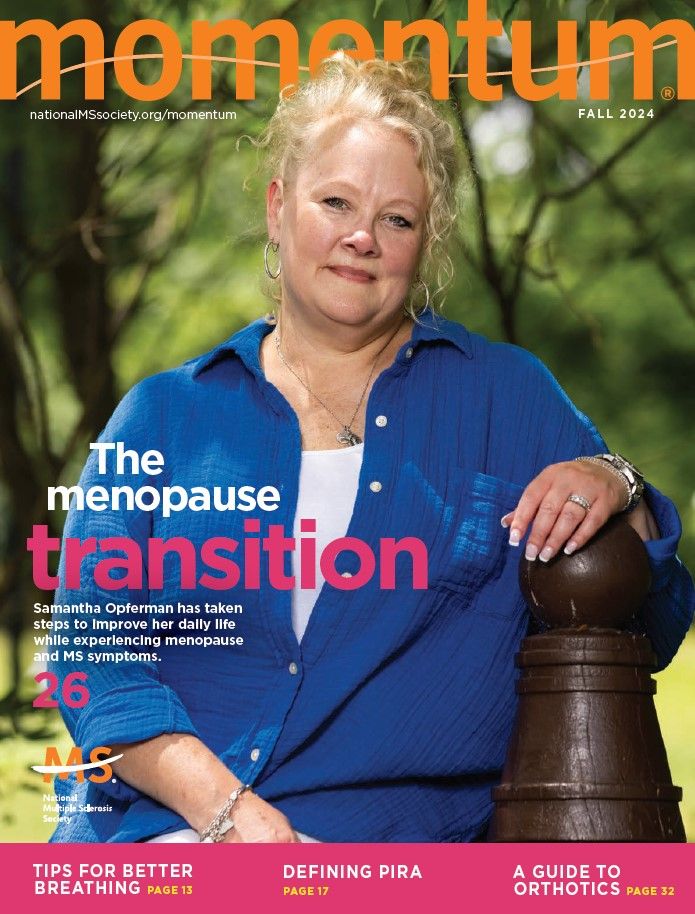When Jeannie, the star character of the 1960s sitcom “I Dream of Jeannie,” waved her hands about, she was using her magical powers as a genie to help astronaut Tony Nelson, who had freed her from her bottle, recalls Dara Brown, a 40-year-old Baltimore resident. But when Brown’s hands started moving on their own, it wasn’t intentional or helpful. “If I went to grab something, my hands would fly all over the place, like Jeannie,” she says.Brown’s uncontrollable shaking, or tremor, is one of the less-common symptoms of multiple sclerosis. It started six years after she was diagnosed with MS in 2006 at age 30. At first, her handwriting looked funny and her fingers hit the wrong keys when she tried to type on the computer. Within about a month, her hands shook so much that she couldn’t feed herself.Most tremors caused by MS are action tremors, like Brown’s, in which the tremor starts when the person moves; it usually affects the hands and arms. Brown’s neurologist prescribed an anti-seizure medicine called carbamazepine, which she takes before she eats. “It’s not a cure, but it helps,” she says.Brown’s happy that it does: Tremor is one of the most difficult MS symptoms to treat. “Drugs that typically work for essential tremor (another type of neurologically induced shaking) or Parkinson’s disease tend not to work with MS tremor,” says Dr. David E. Jones, a neurologist at the James Q. Miller Multiple Sclerosis Clinic at the University of Virginia Health System, and an assistant professor of neurology at the University of Virginia School of Medicine. “Most of the time, the improvement from treatment is mild.” But other approaches, such as physical therapy or using weights on one’s wrist, can often help.Doctors don’t know why some people have these “less-common” symptoms and others don’t. “Presumably the basis for this is location of the lesion,” notes Dr. Jones, but it remains unclear why some locations in the brain and spinal cord are affected more commonly than others.Tremor is just one of several symptoms considered to be “less common” among people with MS, even though 25 percent to 58 percent of people living with the disease experience it. And many of the other less-common symptoms associated with MS can be successfully treated, either with medications, technology or other treatments. The other less-common symptoms of MS are headache, breathing problems, hearing loss, seizures and itching. (See chart below.)











